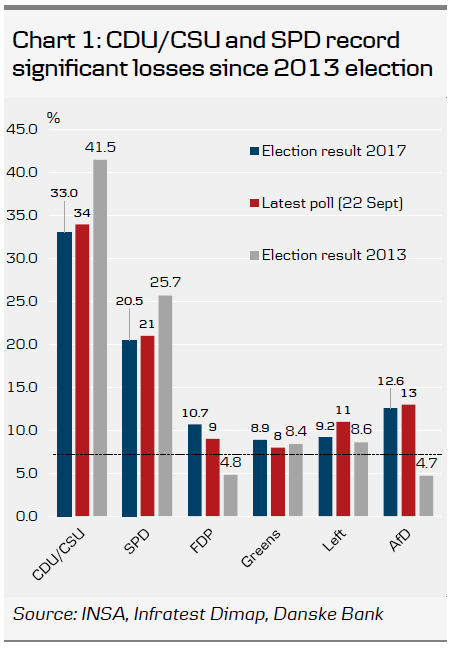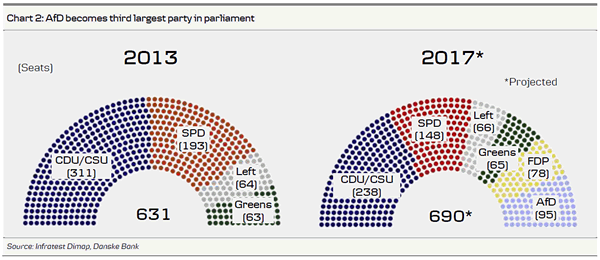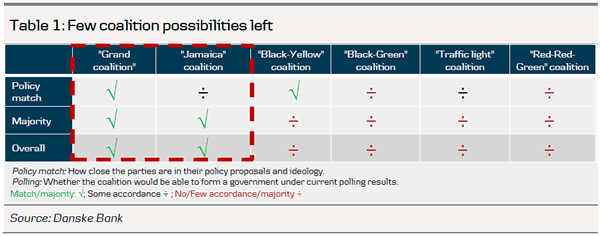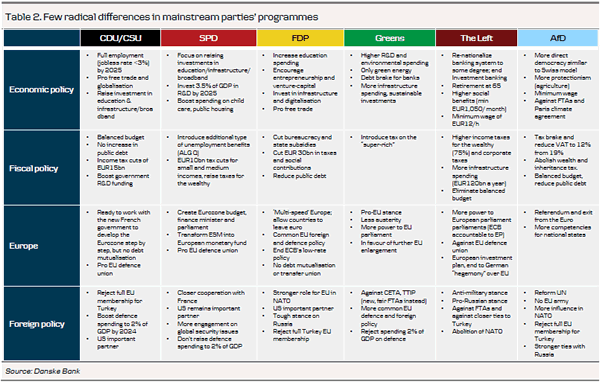Angela Merkel has secured her fourth term in office as her Conservatives (CDU/CSU) remained the largest party with 33.0%, followed by the Social Democrats (SPD) with 20.5%. However, both parties registered significant losses in their vote shares to the benefit of the euro-sceptic AfD party, which will become the first right-wing nationalist party to enter the Bundestag since the 1950s, with a vote share of 12.6% (see Chart 1). Although the AfD outperformed previous polls, its chances of realising any of its policy goals (Table 2) remain very slim, as all other parties have ruled out any cooperation with it. Together with the Greens and the Left, the Liberals (FDP) will also re-enter the Bundestag, taking the total number of parties in parliament from five in 2013 up to seven (Chart 2).
In line with similar trends observed in the Dutch and French elections this year, Election Day brought a dire defeat for the SPD, which recorded its worst ever parliamentary election result. The outcome now leaves only two viable coalition possibilities that can obtain a majority: another grand coalition of CDU/CSU and SPD or a ‘Jamaica’ coalition of CDU, FDP and the Greens (Table 1). However, as the SPD leadership currently rules out another grand coalition under Merkel because of its disappointing election result, a Jamaica coalition seems increasingly likely in our view. Note, however, coalition talks will be difficult and take several weeks or even months in light of the more fragmented political landscape, and the new government composition might not be known before November or December this year.
The election result means that we will probably enter a period of heightened political uncertainty in Germany over the coming weeks as coalition talks drag on. However, we expect that a solution on a government formation under Merkel as Chancellor will eventually be found before the end of the year. Hence, we believe that any adverse market reaction will be short-lived given the high degree of policy continuity under a CDUled coalition and the AfD’s political isolation in parliament. The CDU plans to increase spending on infrastructure and lower taxes should strengthen domestic demand-driven growth in the future, in our view, and support the economic recovery in the eurozone and a gradual scaling back of ECB stimulus over coming years. However, difficult coalition talks ahead raise the bar for any swift progress on potential eurozone reforms as initiated by Emmanuel Macron, also in light of the FDP’s more conservative stance on fiscal risk-sharing.




